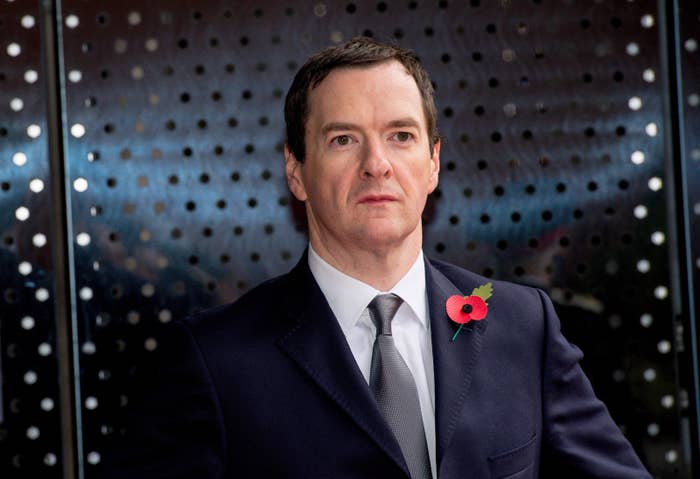
George Osborne's allies have suggested he may be prepared to compromise on plans to cut tax credits for low-paid families, as new research suggests that up to two-thirds of families who currently receive the payments will be worse off by 2020 as a result of the change.
The Conservative chancellor has faced a growing rebellion from members of his own party over the changes, which are set to remove benefits that top up the wages of millions of people early next year.
Osborne's close ally Matt Hancock MP told Radio 4 on Monday that the chancellor is "very much in listening mode" over the issue, suggesting a change of direction may be possible, potentially following Monday afternoon's key House of Lords votes on the multiple amendments to the proposals.
The Conservatives do not have a majority in the unelected upper chamber, where Labour and the Lib Dems are both working to delay the plan and believed they had the votes to make the difference. But Tory ministers have fought back by putting pressure on crossbench peers, many of whom are against the tax-credit cuts, to avoid joining the opposition and blocking the government's spending plans on the basis it would cause a constitutional crisis over who runs the country.
Downing Street said on Monday that the Lords vote would now be about the "longstanding convention" of peers respecting the supremacy of the House of Commons on financial matters. On tax credits, the spokesman said: "The policy is the policy and it is not going to change."
A senior Labour source in the Lords told BuzzFeed News that today's vote would now be very close as a result of the Conservatives' decision to frame the votes as an issue of who controls parliament: "I'm less confident that I would normally be because the government has been leaning on/bullying (depending on your point of view) crossbenchers into thinking of this as a constitutional issue rather than one of public policy. But my hunch is we'll just scrape through."
The Lords will consider multiple amendments to the government's policy in a series of votes this evening, including an attempt by the Liberal Democrats to kill it outright and a proposal by Labour to delay the proposals until there is greater financial protection for those currently receiving the benefits and further government analysis of the impact it will have on low earners.
The Conservatives are suggesting peers who oppose the bill vote for a tamer amendment tabled by the Bishop of Portsmouth which expresses "regret" at the plans without stopping them coming into effect.
Osborne insists that the cuts to tax credits – which are currently used to help individuals on very low incomes – will be offset by his plan to raise the minimum wage to £9/hour, increase income tax thresholds, and improve childcare provision.
But new research by the consultancy Policy in Practice, first reported by the Spectator, suggests that millions of families will still find themselves with lower incomes by the time of the next election, as people are unable to take on enough extra hours to make up for the benefits they have lost. Even with a high uptake of free childcare, the organisation still estimates half of families on tax credits will be worse off by 2020.
Around £4.4 billion will be saved by cutting the tax credit bill, although the research suggests the government will have to increase other welfare payments to low earners, such as housing benefit, as a result.
The analysis also suggests the changes will remove incentives to work longer hours and make it "harder for people that try to earn their way back to their original standard of living".
"The option to increase their working hours may be limited, and will be penalised by a higher withdrawal rate of tax credits," the report states. "Those that contribute most to the economy will be hardest hit."
It concludes: "Our findings were put succinctly by a benefits manager in a Conservative constituency: 'The government wants people to work, but this goes against that'."
